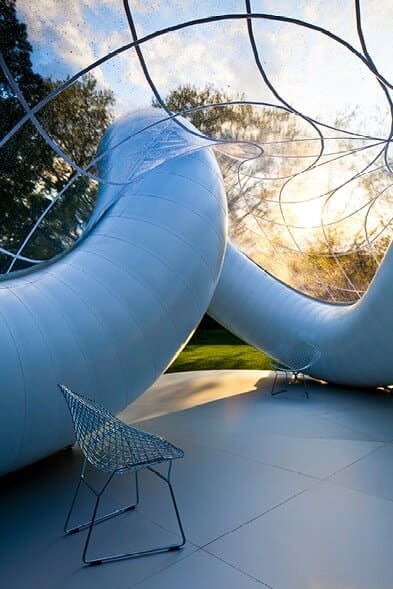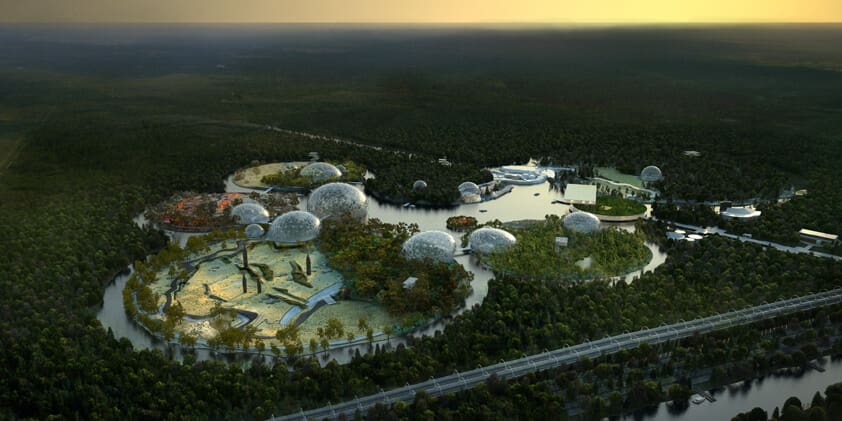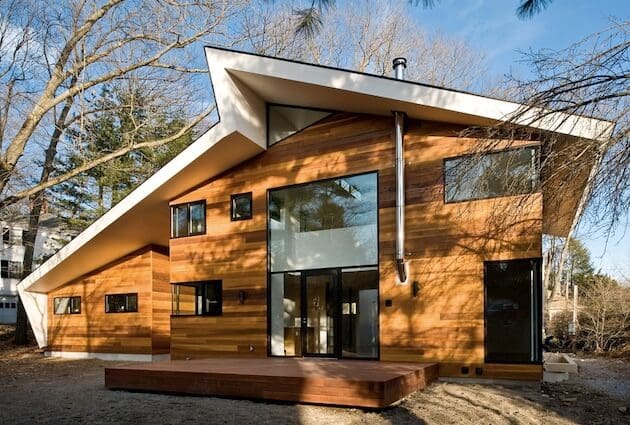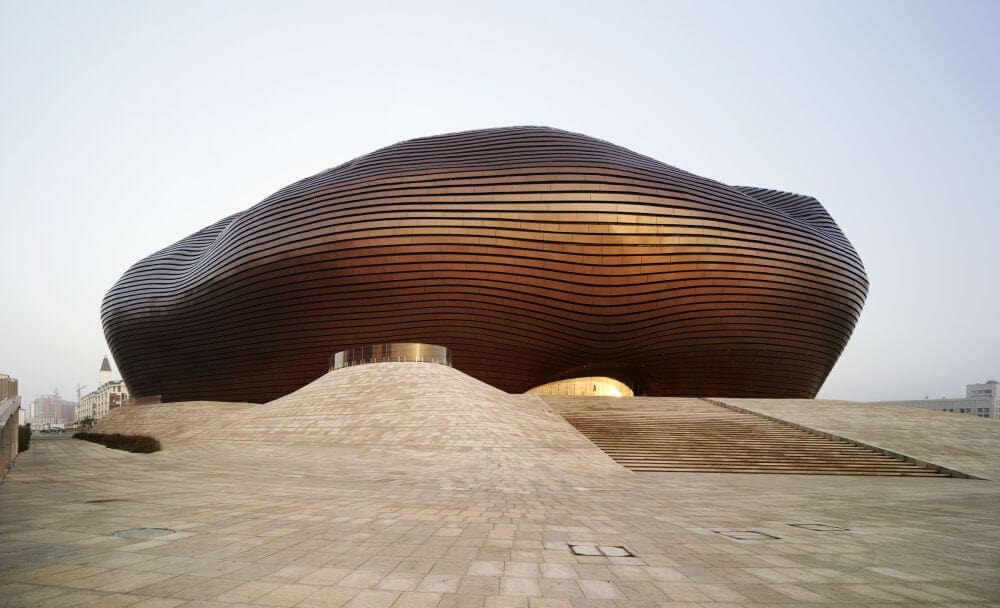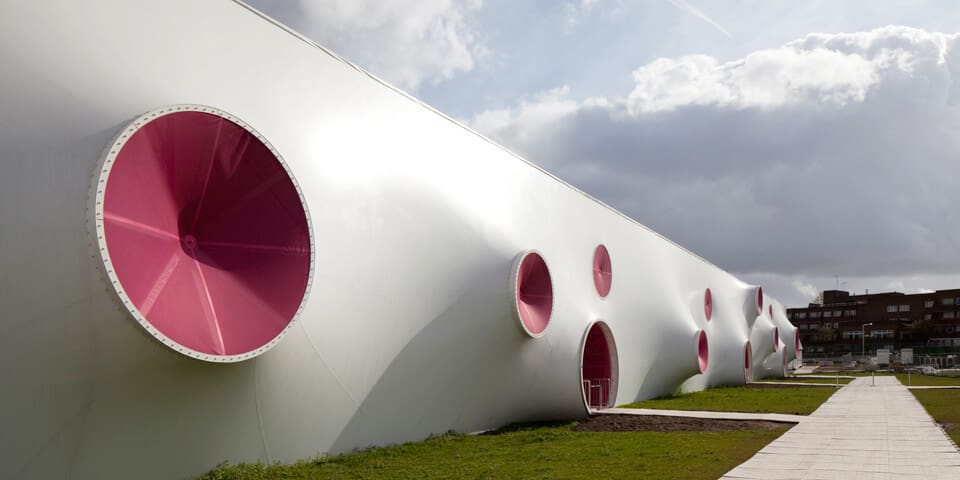As part of the University’s Framework Plan for the Cannon Drive Corridor, Ohio State University South Campus Central Chiller Plant was recently completed by US practice Ross Barney Architects . Situated at the edge of campus, on a proeminent site, in a surface parking lot west of the College of Pharmacy, the new $72.5 m building now serves as an iconic anchor at an important pathway to the main campus.
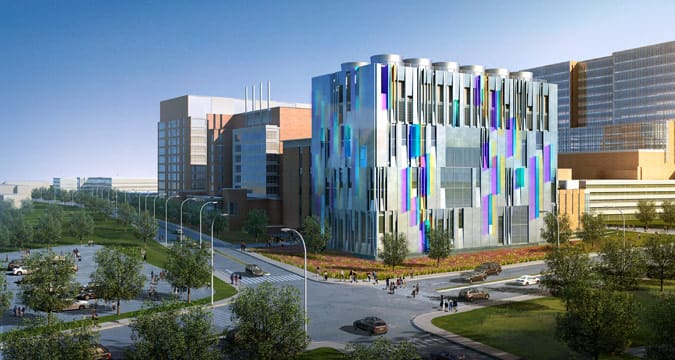
Designed to provide the new Medical Center tower the medical center and all associated buildings in the campus zone “ice” water to be used for an efficient system of air conditioning in the treatment rooms, Ohio State University South Campus Central Chiller Plant is a long-term, active and sustainable solution for chilled water production and distribution.
The architects’ approach consisted of a modular design with auxiliary constituents of a critical equipment, that will be redundant and durable, being able to support 12,500 tons of chilled water for the medical center customers in operating rooms, intensive care, etc. In order to improve reliability and have chilled water for critical operations during power outages, they establish emergency power with the chiller plant. Initially with a capacity of 15,000 tons, the chillers for the plant has now a total chilled water capacity of 30,000 tons. They were set in phases and are remotely supervised with powerful industrial control systems. The design team received overall guidance from Champlin Architecture for this project.

This 95,737-square-foot building has a striking, artistic appearance that draws attention right away due to the beautiful kaleidoscope of colors showased during daytime. The 10-story South Campus Central Chiller plant is comprised of all galvanized structural steel to face fluctuating external and internal extreme temperatures in an urban Midwest environment. Its architecture shell is the most unique feature of the Chiller Plant: the structure consists of concrete panels with a high sheen polish finish and dichoric glass fins that create the illusion of motion as the reflected light changes colors with the movement of the sun.

Large glass-covered openings frame views of the chiller equipment, helping to spot the building’ purpose. The design incorporates sustainable principals and will be integrated with the planning of LEED certification of other District facilities, therefore the structure will be intact and corrosion-free in the years to come.
Landscaping around the building is the solution to revitalize the greenscape along the nearby Olentangy River. A “pond” of prairie grass will be planted, also plaza and landform seating area will be created in order to engage the pedestrian traffic.
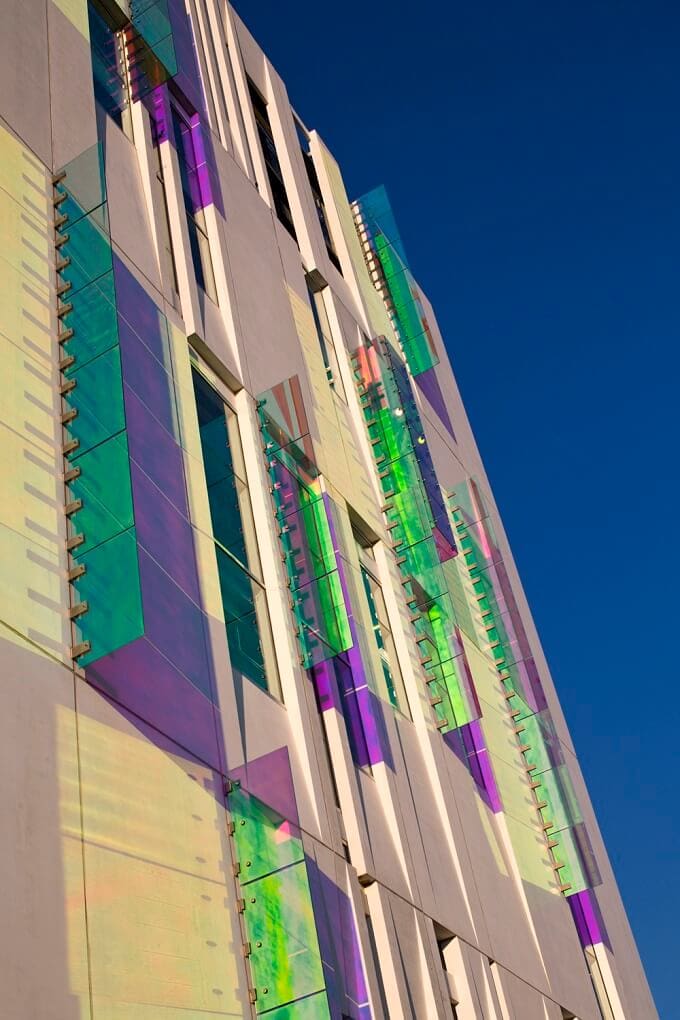
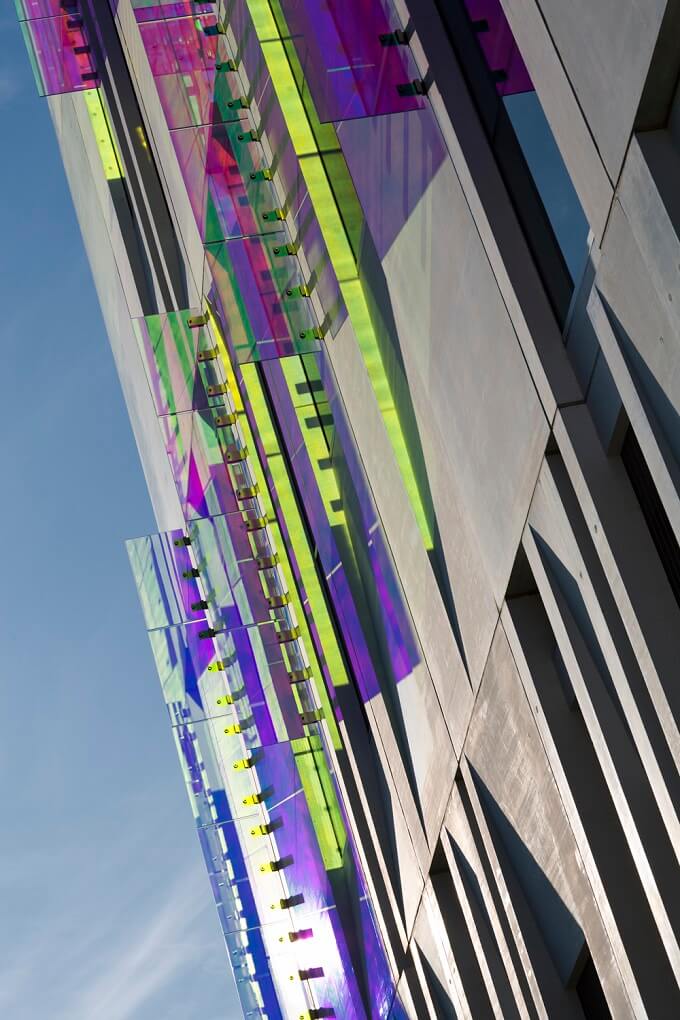
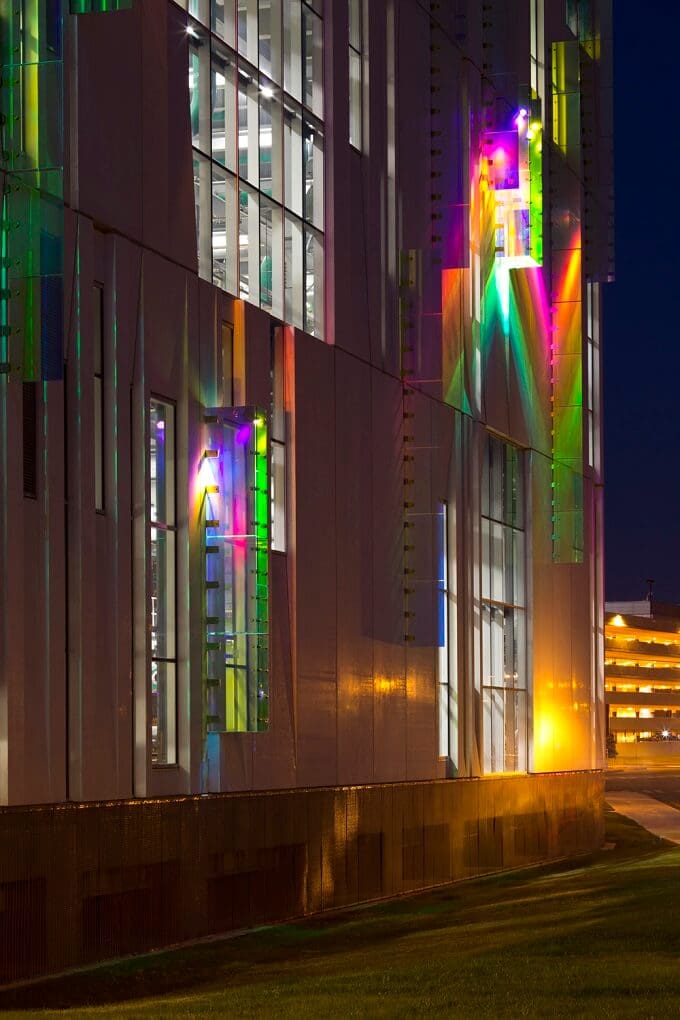
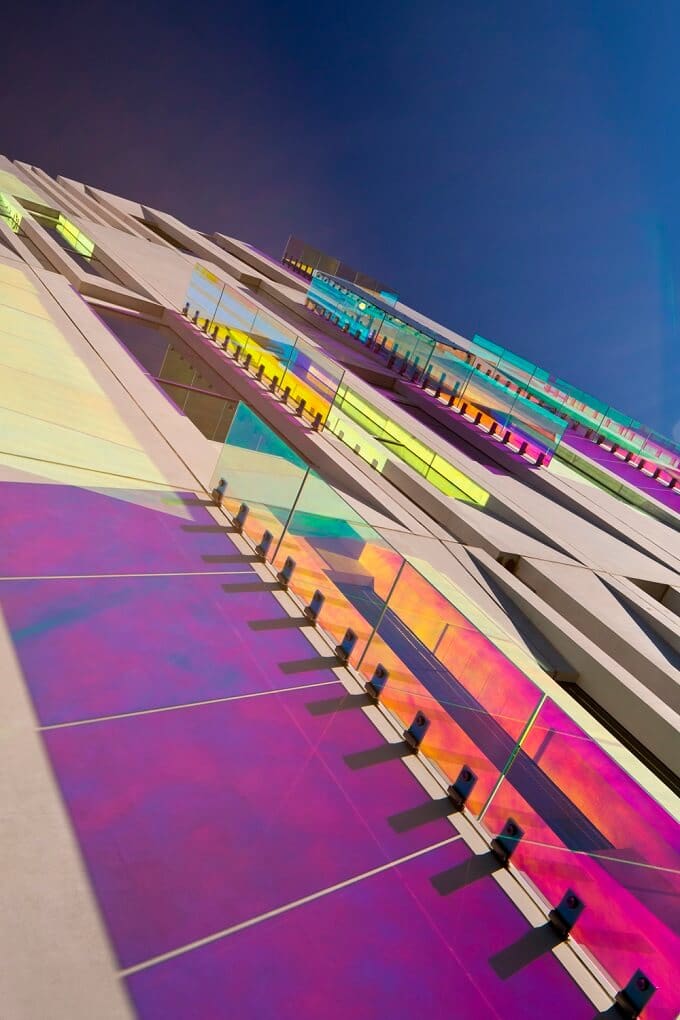
Photos © Brad Feinknopf, Ross Barney Architects
Project details:
Client: The Ohio State University
Location: Columbus, OH, United States
Design Architect: Ross Barney Architects
Architect of Record: Champlin Architecture
Local Architect: Lupton Rausch
Program: 30,000 tons chilled water
Costs: $72.5 million
Status: Complete 2013

